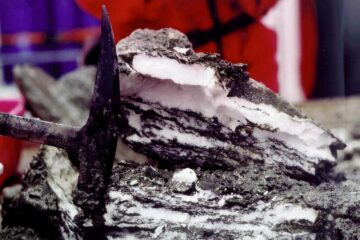Earth Sciences (also referred to as Geosciences), which deals with basic issues surrounding our planet, plays a vital role in the area of energy and raw materials supply.
Earth Sciences comprises subjects such as geology, geography, geological informatics, paleontology, mineralogy, petrography, crystallography, geophysics, geodesy, glaciology, cartography, photogrammetry, meteorology and seismology, early-warning systems, earthquake research and polar research.

The Arctic is remote, with often harsh conditions, and its climate is changing rapidly — warming four times faster than the rest of the Earth. This makes studying the Arctic…

New research has shown that methane trapped under the ocean is vulnerable to climate change and could be released into the ocean. An international team of researchers involving experts from…

New data analyses allow better evaluation of climate models. Scientists use climate models to simulate past climate, in order to determine how and why it has changed. As a result…

Researchers led by Göttingen University determine factors for chemical development in crater lakes on Earth. In southern Germany just north of the Danube, there lies a large circular depression between…

Kiel researchers evaluate the future protection potential of dikes and show flooding scenarios for the German Baltic Sea coast until 2100. The record storm surge in October 2023 caused severe…

Yesterday evening, the research vessel Polarstern set off from Cape Town for a special region: Two expeditions in East Antarctica will focus on the history of the instability of the…